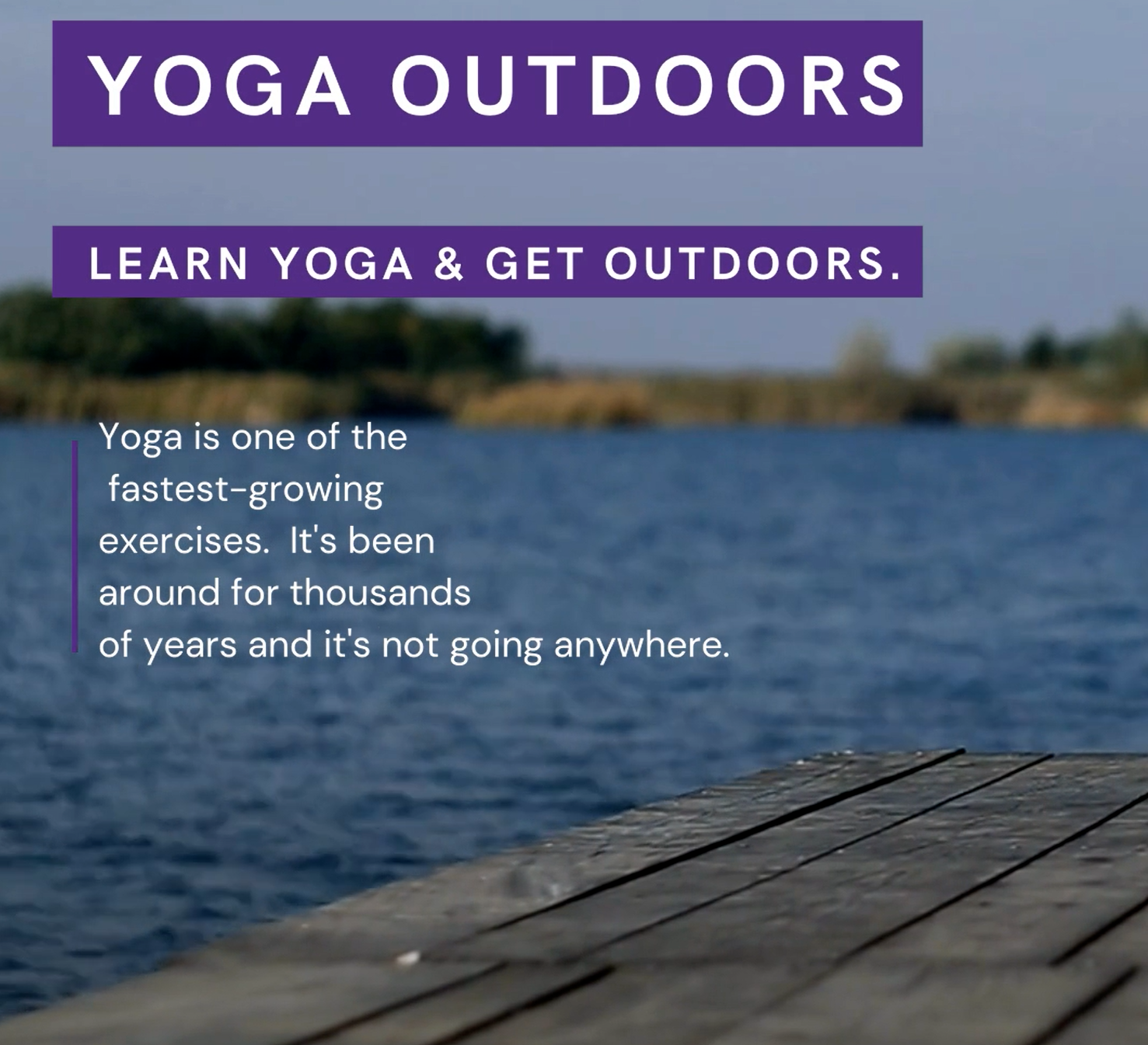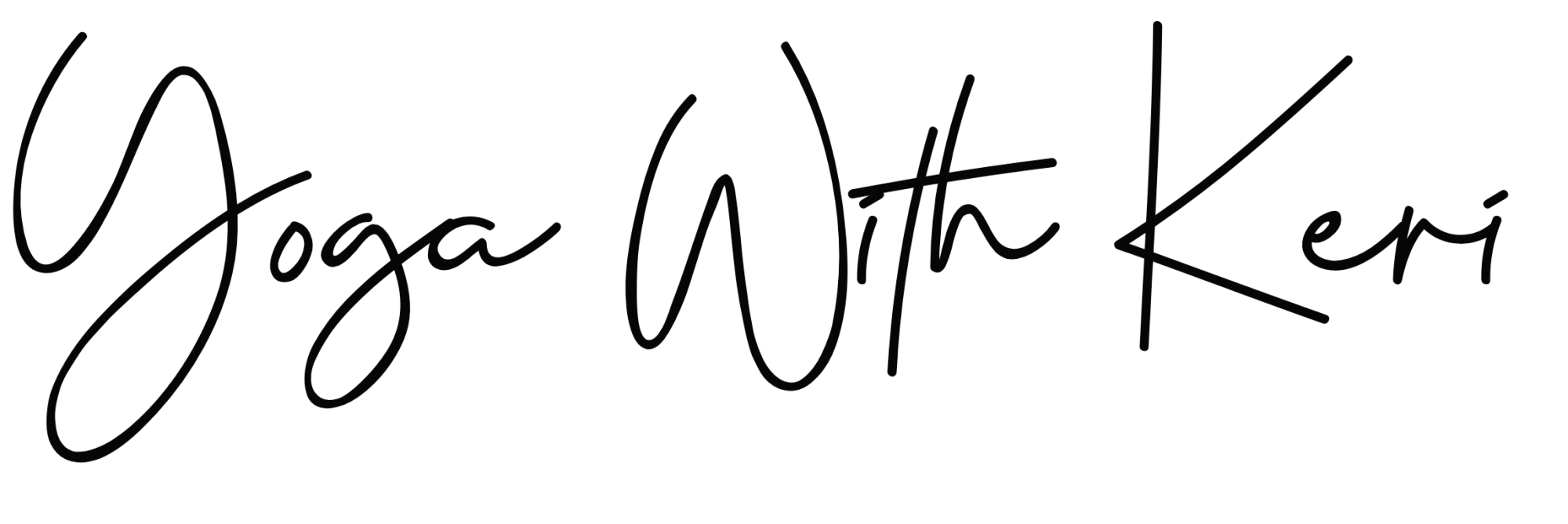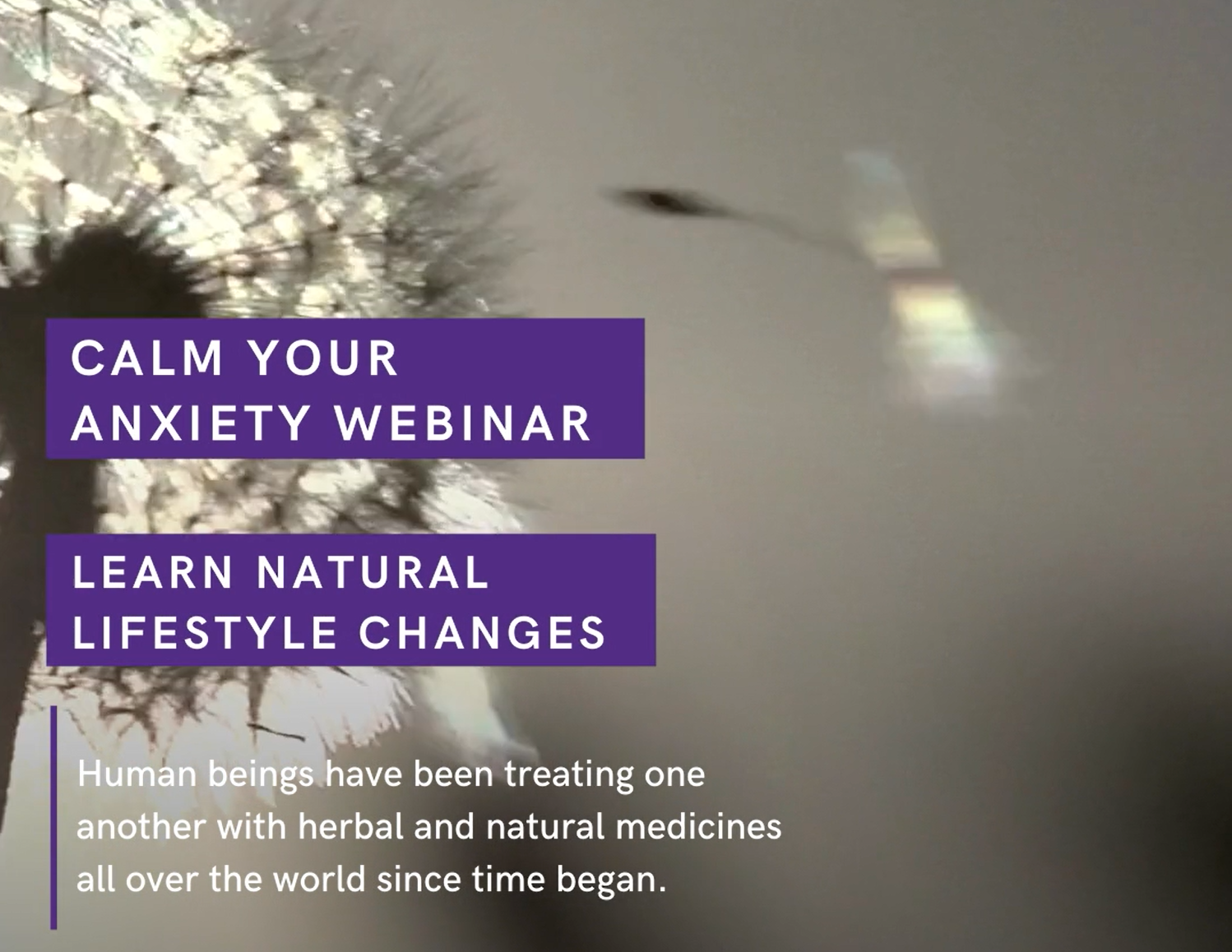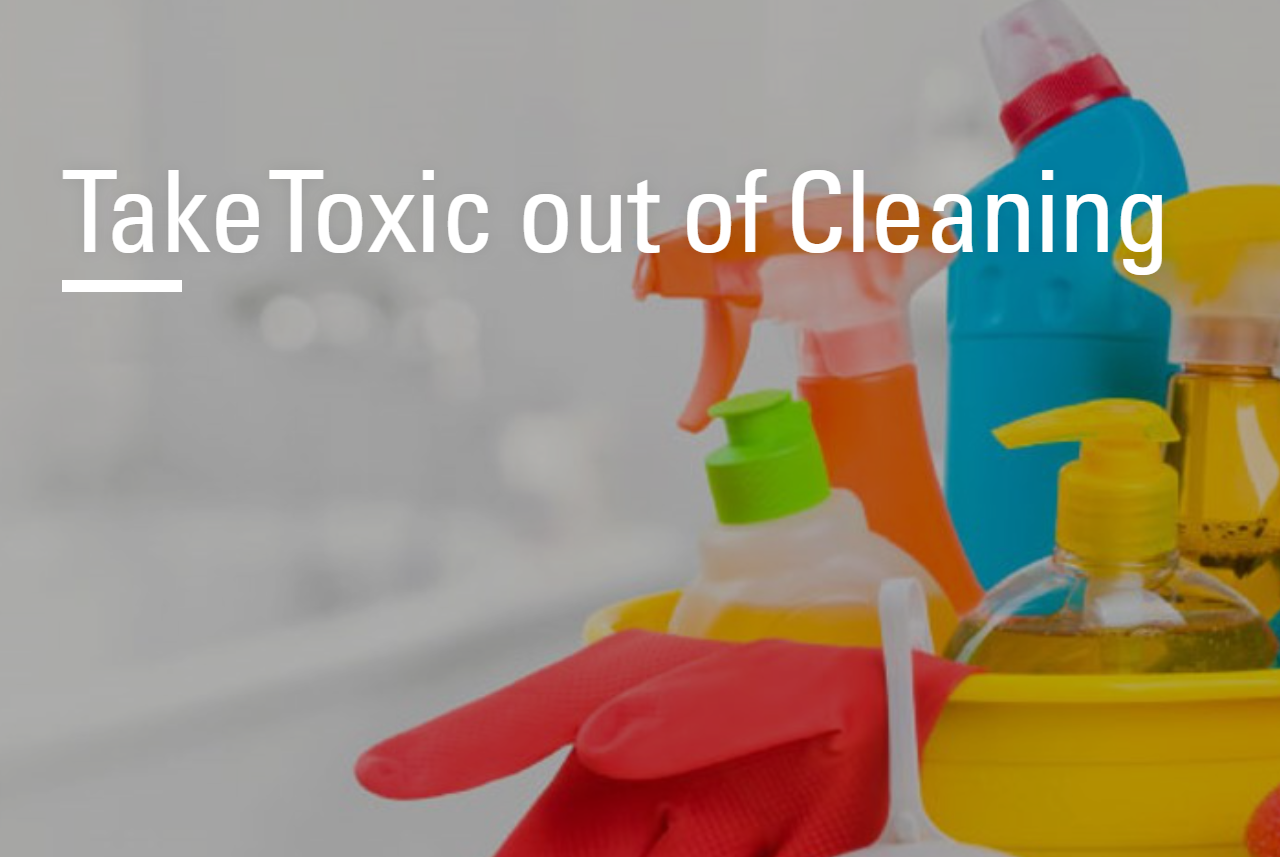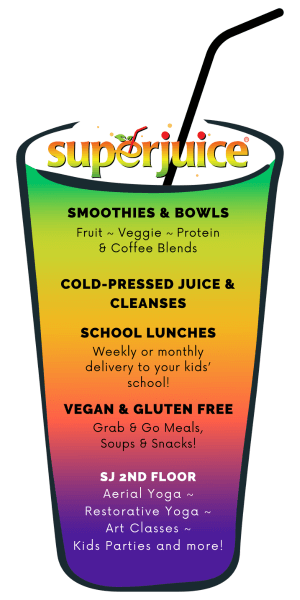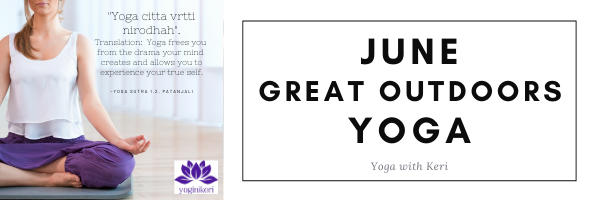
As any yoga instructor will tell you, yoga is more than crazy headstands and impressive balances, it's a lifestyle that brings balance and harmony to the mind, body and spirit.
However, most people know Yoga as the the poses. But did you know that each pose has many benefits?
Join this June's Yoga challenge and you'll learn which poses will help you the most!
June's Yoga Pose challenge is perfect for New or Seasoned Yogis!
- Sign up here FREE --- It's FREE to join in so make sure to share with anyone you think should start Yoga ASAP!
- Those who post their pose of the day daily on Social Media (& tag me) will be entered to win a FREE Lake or Virtual Yoga Class with me!
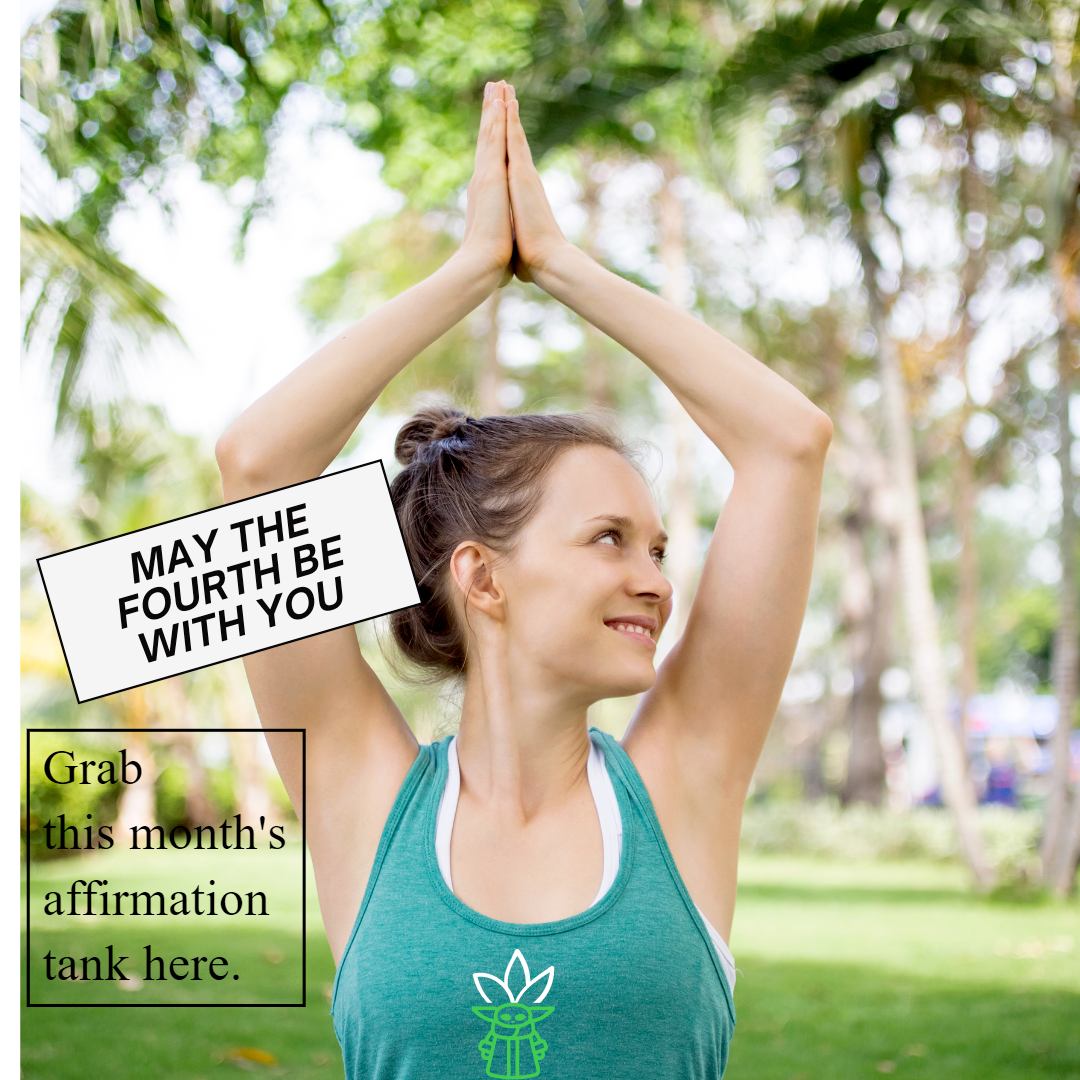 YOGA ON THE MAT
YOGA ON THE MAT LAKE, PADDLEBOARD, VIRTUAL (Mat/Chair/Desk)
Each week's class this JUNE will incorporate the 7 days of poses you learned about.
Here's how you can join me for class this month:
- Weekly class: Saturdays at 10:30am
*4 person minimum so sign up 24 hours in advance to reserve your spot! - Create your own lake yoga or virtual class. Coordinate date/time here. *Splitting the class fee is more economical than attending the weekly class.
- Paddleboard Yoga - message me for more information
- Prenatal Yoga
- Mom & Me Yoga (ages 7-12) - message me for more information
 SAVVI
SAVVIMy team is doing a legging giveaway this week!
All you have to do is share this picture to your social media wall and tag me to be entered to win a FREE pair of leggings!
The winner will be announced next week!
Not on Social media, no worries. Use this coupon this week & you'll ALSO be entered to win!
SHOP HERE...
SHOP HERE...
Namaste,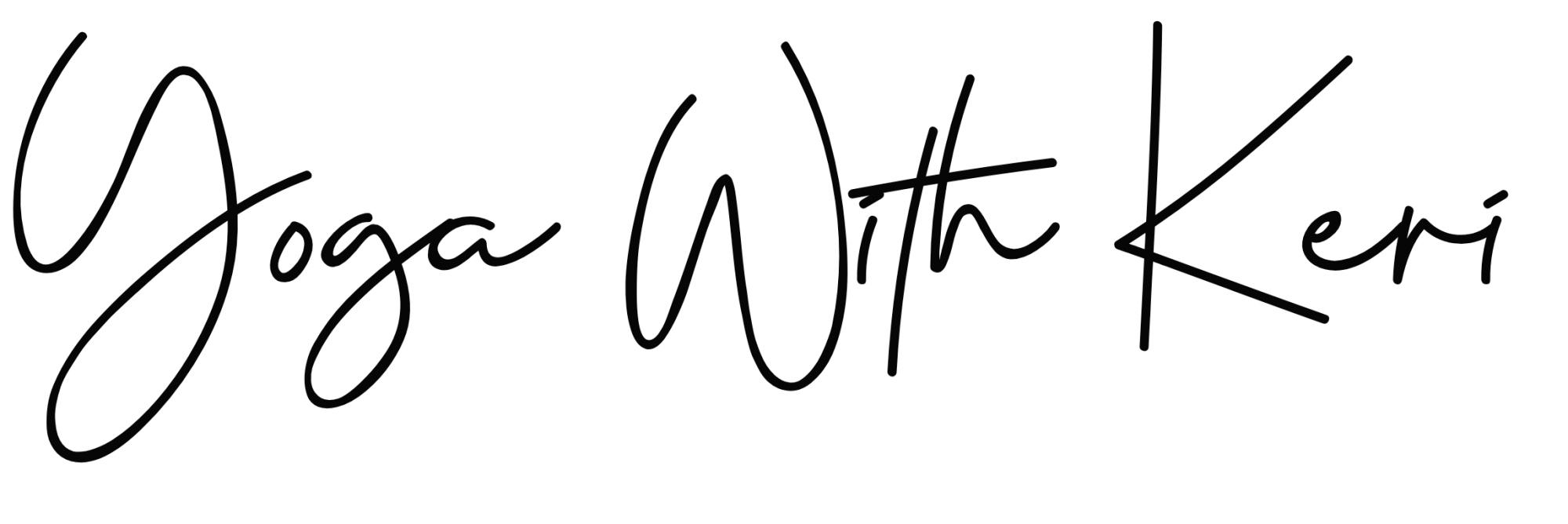


If you LOVE tie dye and matchy sets, this is your week to grab my friends and family gift code for $25 off. These fun & fresh sets will be released at our weekly new release drop.
Watch the Fashion Show at 1pm ET Facebook or Instagram & then Shop the website immediately following the show.....stuff will sell out!!
These killer sets will elevate not only your style but your confidence. Dress them up or wear them to Yoga!
- Reef Sports Bra - The Reef Sports Bra is just pretty. The tie dye colors, the twisted straps, the flattering front scoop, and the support!! The fabric is also very functional with 25% spandex, this bra has excellent stretch and recovery. The nylon Interlock has been brushed which provides soft handful and moisture wicking performance. Comes in purple & blue.
- Reef Legging - The Reef Legging is cut similar to our Indi. The fit is very functional and the fabric adds to this with lots of stretch and recovery. The print was developed exclusively for Savvi. The 26" inseam is just the right length to land just above the ankle. This legging is an excellent performance legging and also crosses over to everyday with a tee shirt and sandals. Comes in purple & blue.

- Indi Legging - Stay fit on any terrain! The Indi Leggings will take your active game and blow it out of the park. Featuring a comfortable, durable fabric with a non slip waistband that won't slow you down. The ease of the Indi Leggings lets you stay active without any sacrifices.
- Addy Sports Bra - The Addy Sports Bra is designed with support in mind while providing feminine details. The narrow straps and racer back combined with the cross cut support from the fabric are the perfect combination of details. The front panel is gathered in the center to define shape and maintain support. The V neckline also adds a pretty detail.
- Tundra Sports Bra - A clean modern cut and soft four-way stretch make the Tundra bra a go to for your workouts and lifestyle layering. With a soft carved V-neck and simple yet feminine shaped straps, the Tundra bra is flattering on all women. The Soft 2” under elastic band will give you the support you need throughout the day. The Tundra is a style that pairs with everything!
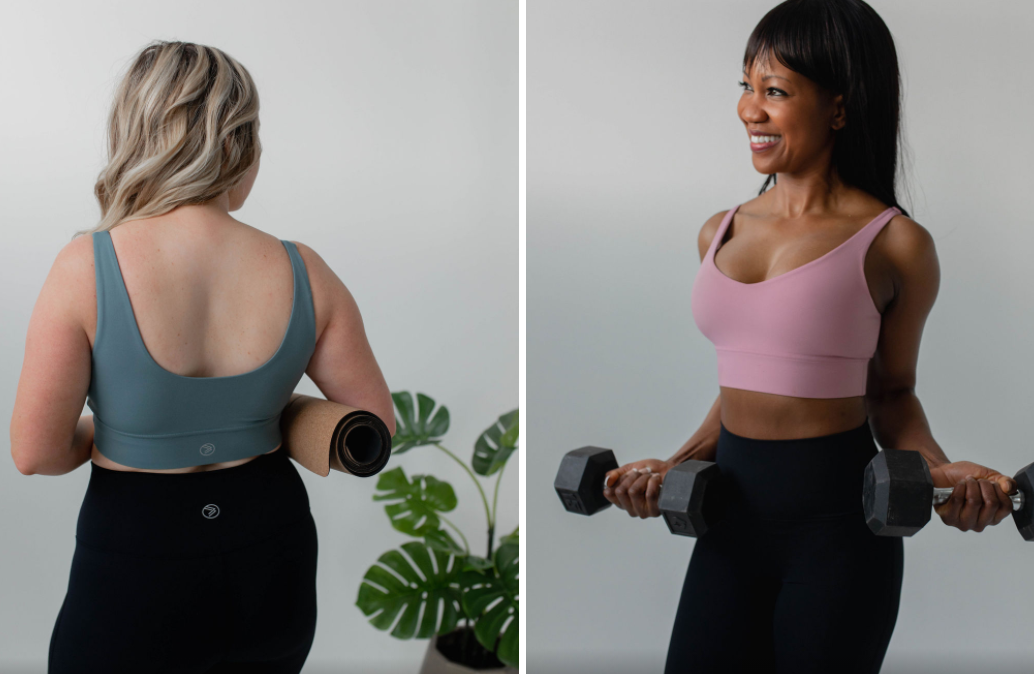
vip pricing 15% off if you LIVE IN & LOVE ATHLEISUREWEAR SO MUCH, WATCH this VIDEO to join in on this awesome opportunity!!!!
- Join my weekly class here. Saturdays at 10am. Space is limited. To reserve your spot, register by 8pm Friday night here.
- Book your small group. Grab 2-6 friends for your weekly "zen hour".
- Book you private SUP class. On your own or as a group of 3!
- Learn to meditate right here!
- New to Yoga? Watch my intro webinar here.

New to meditating? Follow along with this month's "Stop Drop & Meditate Social Media Series" and Watch this month's "Why Meditate" webinar by going here. #mindset #meditationmay #meditationchallenge #meditation
Day 1:
Is there a wrong way to breathe?
Breathing is an automatic function, but many of us don’t utilize the full capacity of our breath!
While there isn’t necessarily a ‘wrong’ way to breathe, there certainly are better ways.
Meditation offers a number of beneficial tips on breath focus to calm your mind and rejuvenate your body by increasing oxygen intake. Focused breathing is a great way to start your meditative practice.
Breathing is an automatic function, but many of us don’t utilize the full capacity of our breath!
While there isn’t necessarily a ‘wrong’ way to breathe, there certainly are better ways.
Meditation offers a number of beneficial tips on breath focus to calm your mind and rejuvenate your body by increasing oxygen intake. Focused breathing is a great way to start your meditative practice.
Day 2:
Focused breathing has a number of benefits, including relieving stress and anxiety, improving concentration, and providing a protective shield from negative thoughts.
While meditation doesn’t require specific breathing techniques, there are a number of beneficial approaches you can try.
To start your meditation practice, keep it simple. Breathe normally and simply focus your attention on each inhalation and exhalation. Focus on how the air feels entering and exiting the body. As you become more relaxed you can try incorporating different techniques, such as the 4-7-8 breath.
The 4-7-8 technique can be done from anywhere. Start with the tip of your tongue on the roof of the mouth behind your upper front teeth. Inhale through your nose for a count of 4. Hold your breath for a count of 7. Exhale completely with the tongue still on the roof of the mouth through the mouth. Repeat the cycle three more times for a total of four breaths.
Focused breathing has a number of benefits, including relieving stress and anxiety, improving concentration, and providing a protective shield from negative thoughts.
While meditation doesn’t require specific breathing techniques, there are a number of beneficial approaches you can try.
To start your meditation practice, keep it simple. Breathe normally and simply focus your attention on each inhalation and exhalation. Focus on how the air feels entering and exiting the body. As you become more relaxed you can try incorporating different techniques, such as the 4-7-8 breath.
The 4-7-8 technique can be done from anywhere. Start with the tip of your tongue on the roof of the mouth behind your upper front teeth. Inhale through your nose for a count of 4. Hold your breath for a count of 7. Exhale completely with the tongue still on the roof of the mouth through the mouth. Repeat the cycle three more times for a total of four breaths.
Day 3:
Feeling Drained? Try this energizing breath adapted from yogic breathing techniques.
When done properly, the stimulating breath can be invigorating. This is a diaphragmatic breathing exercise to give you a boost.
Begin by inhaling and exhaling rapidly through your nose in equal durations. As you quicken the pace work up to three in-and-out breathe cycles per second to create a quick movement in the diaphragm. Be careful not to go beyond 15 seconds when you first begin this technique.
When done properly, the stimulating breath can be invigorating. This is a diaphragmatic breathing exercise to give you a boost.
Begin by inhaling and exhaling rapidly through your nose in equal durations. As you quicken the pace work up to three in-and-out breathe cycles per second to create a quick movement in the diaphragm. Be careful not to go beyond 15 seconds when you first begin this technique.
Day 4:
Try breath counting to find your Zen.
Count each exhalation up to five, then start over again from one. You only count on exhalations. You’ll notice your attention has wavered if your count goes beyond five.
This is a deceivingly simply breath technique to teach your mind greater focus and concentration.
Count each exhalation up to five, then start over again from one. You only count on exhalations. You’ll notice your attention has wavered if your count goes beyond five.
This is a deceivingly simply breath technique to teach your mind greater focus and concentration.
Day 5:
Improve breathing during meditation with these basic steps:
-Find a quiet place void of distractions.
-Get comfortable in an upright seated posture.
-Eliminate distractions. Your cell phone should be on silent and pets kept in another room.
-Choose your breathing technique. Simply counting is good for beginners.
-Notice how your body feels.
-Tame wandering thoughts gently.
-Find a quiet place void of distractions.
-Get comfortable in an upright seated posture.
-Eliminate distractions. Your cell phone should be on silent and pets kept in another room.
-Choose your breathing technique. Simply counting is good for beginners.
-Notice how your body feels.
-Tame wandering thoughts gently.
Day 6:
Some incorrectly believe the purpose of meditation is contemplative thinking, which is actually the complete opposite of what meditation aims to do.
Meditation is simply a method of calming and quieting the mind. The goal is to improve self-awareness. While many things in life are out of our control, the mind isn’t. Gaining control of our thoughts can help us cope with personal fears, sadness, grief, and anxiety.
In Zen Buddhism, there is a famous analogy by Suzuki Roshi, “Your thoughts are like cows, give them a big field to graze, but watch them. Gradually they will calm down.”
Meditation is simply a method of calming and quieting the mind. The goal is to improve self-awareness. While many things in life are out of our control, the mind isn’t. Gaining control of our thoughts can help us cope with personal fears, sadness, grief, and anxiety.
In Zen Buddhism, there is a famous analogy by Suzuki Roshi, “Your thoughts are like cows, give them a big field to graze, but watch them. Gradually they will calm down.”
Day 7:
If you have time to breathe you have time to meditate.
“You breathe when you walk. You breathe when you stand. You breathe when you lie down.” – Ajahn Amaro
Indian Buddhists developed the practice of meditation in 500 BCE. Since then the practice has grown exponentially. It’s estimated the current number of practitioners are now in the millions. The practice of meditation has evolved and infiltrated various religious practices, cultures, and countries around the world.
Upwards of 10% of the U.S. population are thought to meditate in one form or another. It comes to no surprise when you consider that the goal of meditation is to teach us how to focus our attention on the present moment in order to live happier and more fulfilled lives.
“You breathe when you walk. You breathe when you stand. You breathe when you lie down.” – Ajahn Amaro
Indian Buddhists developed the practice of meditation in 500 BCE. Since then the practice has grown exponentially. It’s estimated the current number of practitioners are now in the millions. The practice of meditation has evolved and infiltrated various religious practices, cultures, and countries around the world.
Upwards of 10% of the U.S. population are thought to meditate in one form or another. It comes to no surprise when you consider that the goal of meditation is to teach us how to focus our attention on the present moment in order to live happier and more fulfilled lives.
Day 8:
Meditation isn't just for Adults. Among the U.S. population of children, around 2% are meditating - that’s somewhere in the hundred thousand's!
Children in today’s world suffer from more stress than ever before! Meditation is a wonderful tool to equip them with to reduce anxiety and stress. Not to mention, schools incorporating meditation into children’s learning regimens report improved academic performance!
Keep an eye out for this growing trend. Better yet, start a practice with your kids!
Children in today’s world suffer from more stress than ever before! Meditation is a wonderful tool to equip them with to reduce anxiety and stress. Not to mention, schools incorporating meditation into children’s learning regimens report improved academic performance!
Keep an eye out for this growing trend. Better yet, start a practice with your kids!
Day 9:
Meditation Tips for beginners. Here are 5 tips to help you get started:
1. You can meditate from anywhere.
2. You don’t have to close your eyes.
3. Don’t feel you have to be seated to meditate.
4. Be patient, meditation takes practice.
5. Count your breaths to practice mindfulness.
Check out https://bit.ly/2HygjiW for more useful tips!
1. You can meditate from anywhere.
2. You don’t have to close your eyes.
3. Don’t feel you have to be seated to meditate.
4. Be patient, meditation takes practice.
5. Count your breaths to practice mindfulness.
Check out https://bit.ly/2HygjiW for more useful tips!
Day 10:
“Where there is peace and meditation, there is neither anxiety nor doubt.” – St Francis De Sales
Day 11:
If you’re ready to let go of anxiety, fear, and worry, meditation can help!
The practice of meditation teaches mindfulness, the art of living in the present. Anxiety and worry are created by thoughts from the past or future. Learning to keep your thoughts in the present moment instead is a powerful tool for combating the debilitating effects of fear and anxiety.
Guided mindfulness meditation is a practice to help guide you to a meditative and relaxed state of mind. They can be an extremely powerful way of eliciting change in your life, due to the nature of the way the brain works.
If you suffer from anxiety, fear, or worry try this guided meditation: https://www.youtube.com/watch?v=4EaMJOo1jks
The practice of meditation teaches mindfulness, the art of living in the present. Anxiety and worry are created by thoughts from the past or future. Learning to keep your thoughts in the present moment instead is a powerful tool for combating the debilitating effects of fear and anxiety.
Guided mindfulness meditation is a practice to help guide you to a meditative and relaxed state of mind. They can be an extremely powerful way of eliciting change in your life, due to the nature of the way the brain works.
If you suffer from anxiety, fear, or worry try this guided meditation: https://www.youtube.com/watch?v=4EaMJOo1jks
Day 12:
Mantra meditation is a form of meditation where a particular sound or phrase is repeated. This can be done out loud through chanting or in your mind.
To begin, pick a mantra that is meaningful to you. Using a mantra to help you focus helps to suppress thoughts and distractions around you.
Do you have a favorite mantra you use?!
To begin, pick a mantra that is meaningful to you. Using a mantra to help you focus helps to suppress thoughts and distractions around you.
Do you have a favorite mantra you use?!
Day 13:
Om, pronounced A-U-M, is noted as the first sound heard at the creation of the universe. With the pronunciation of each syllable creates internal energy. The vibrations are said to unblock the throat chakra, which can lead to more attuned communication with others.
Day 14:
The mantra: Om śāntiḥ śāntiḥ śāntiḥ
Pronunciation: A-U-M Shanti Shanti Shanti
Translation: Om Peace Peace Peace
Pronunciation: A-U-M Shanti Shanti Shanti
Translation: Om Peace Peace Peace
Day 15:
Heart rhythm meditation helps focus energy on developing consciousness through concentration on the heart. Many practitioners of heart rhythm meditation report experiencing profound physical, emotional, and spiritual benefits.
A common mantra for heart rhythm meditation is “I am a part of all things and all things are a part of me.”
A common mantra for heart rhythm meditation is “I am a part of all things and all things are a part of me.”
Day 16:
Heart rhythm meditation helps focus energy on developing consciousness through concentration on the heart. Many practitioners of heart rhythm meditation report experiencing profound physical, emotional, and spiritual benefits.
A common mantra for heart rhythm meditation is “I am a part of all things and all things are a part of me.”
A common mantra for heart rhythm meditation is “I am a part of all things and all things are a part of me.”
Day 17:
Many find the practice of walking meditation to be the perfect complement to their seated practice.
Walking meditation isn’t as simple as a stroll in the park. The practice is much slower and coordinates slow movements with breathing. Overall, walking meditation encourages more interaction with the outside world.
Walking meditation isn’t as simple as a stroll in the park. The practice is much slower and coordinates slow movements with breathing. Overall, walking meditation encourages more interaction with the outside world.
Day 18:
"Meditation is all about the pursuit of nothingness. It's like the ultimate rest. It's better than the best sleep you've ever had. It's a quieting of the mind. It sharpens everything, especially your appreciation of your surroundings. It keeps life fresh." -Hugh Jackman
Meditation offers many benefits, such as:
-reduces stress
-improves concentration
-encourages a healthy lifestyle
-increases self-awareness
-increases happiness
-increases acceptance
-slows aging
Meditation offers many benefits, such as:
-reduces stress
-improves concentration
-encourages a healthy lifestyle
-increases self-awareness
-increases happiness
-increases acceptance
-slows aging
Day 19:
Developing a stronger sense of self-awareness is one of the many benefits of meditation.
The concept of self-awareness has always been an intriguing subject to both philosophers and psychologists. According to many professionals, self-awareness is considered a major mechanism of self-control and emotional intelligence.
The concept of self-awareness has always been an intriguing subject to both philosophers and psychologists. According to many professionals, self-awareness is considered a major mechanism of self-control and emotional intelligence.
Day 20:
Studies reveal that meditation changes brain physiology, which naturally slows the aging process. Meditators have been found to have more brain cells in the form of gray matter. One study found that those who meditate also have longer telomeres, the caps on chromosomes indicative of biological age!
Long story short - meditation helps to preserve your youth!
Long story short - meditation helps to preserve your youth!
Day 21:
By improving your acceptance of self and the world around you through meditation, you will begin to have a more positive outlook on life.
New theories of cognitive therapy have been developed with acceptance as the main focus. Acceptance is taught through mindfulness which allows an awareness of the present moment without judgment.
Acceptance has been touted as a key to happiness since Buddhism was born!
New theories of cognitive therapy have been developed with acceptance as the main focus. Acceptance is taught through mindfulness which allows an awareness of the present moment without judgment.
Acceptance has been touted as a key to happiness since Buddhism was born!
Day 22:
Nature offers a place of peace for many. Nature meditations help us focus our awareness on the experience of nature - sight, sound, touch, smell.
Try something new in your meditative practice, such as a listening meditation.
Simply find a place in nature and focus on the sounds around you. The practice can be done with eyes closed to help you focus solely on the sounds around you. Listen for birds singing or natural water running. Notice the sound the leaves make when a breeze passes through. The possibilities are endless!
Try something new in your meditative practice, such as a listening meditation.
Simply find a place in nature and focus on the sounds around you. The practice can be done with eyes closed to help you focus solely on the sounds around you. Listen for birds singing or natural water running. Notice the sound the leaves make when a breeze passes through. The possibilities are endless!
Day 23:
“SEX! Now that I have your attention… Please try to meditate at least 15 minutes, every day. You know it’s good for you.” – Marcelo Alves
Day 24:
The famous Roman emperor, Marcus Aurelius, was a practitioner of Stoicism, and his untitled writing, commonly known as Meditations, is considered by most as one of the greatest works of philosophy.
The insights provided by Marcus Aurelius are just as applicable today! His teaching can be a great compliment to your meditative practice.
The insights provided by Marcus Aurelius are just as applicable today! His teaching can be a great compliment to your meditative practice.
Day 25:
“Om Tat Sat” is a Hindu mantra from an ancient Hindu scripture the Bhagavad Gita. The three words denote the absolute truth. Om refers to the Infinite Spirit, tat to “all that is,” and sat to the “truth”.
Learn more here: https://youtu.be/ew3Pngkjqqc
Learn more here: https://youtu.be/ew3Pngkjqqc
Day 26:
The practice of being mindful is what mediation is all about. Mindfulness is rooted in Buddhism, but most religions include some type of prayer or meditation to help shift you toward an appreciation of the moment.
Cultivating mindfulness is associated with living a more satisfying life and living with more gratitude which provides a more positive outlook thus improving every aspect of life.
Cultivating mindfulness is associated with living a more satisfying life and living with more gratitude which provides a more positive outlook thus improving every aspect of life.
Day 27:
“Thoughts are like birds in mind; some fly in, some fly out. Some stay at the watering hole to drink. Beware of birds that linger.” – Natalie Wright
Use meditation as a tool to help you release negative thoughts. Negative thinking can be poison (and contagious). Fortunately, meditation can help you focus on the positive and release the negative.
Use meditation as a tool to help you release negative thoughts. Negative thinking can be poison (and contagious). Fortunately, meditation can help you focus on the positive and release the negative.
Day 28:
Mudras are symbolic gestures often practiced with the hands and fingers. Mudras can be a great accompaniment to your meditation practice.
To perform the consciousness seal mudra, rest your hands on top of your thighs with your palms open. Gently tuck the tip of the index finger under the tip of the thumb, while keeping the remaining three fingers lightly extended. Keep the palms facing upward and relax your hands.
This mudra is used to help you connect to your higher self, lift your energy, and brighten your mood.
To perform the consciousness seal mudra, rest your hands on top of your thighs with your palms open. Gently tuck the tip of the index finger under the tip of the thumb, while keeping the remaining three fingers lightly extended. Keep the palms facing upward and relax your hands.
This mudra is used to help you connect to your higher self, lift your energy, and brighten your mood.
Day 29:
The lotus flower is symbolic of Buddhist teachings of purity of the body, speech, and mind. While the lotus is rooted in mud its flowers blossom on long stalks as if floating above the muddy waters of attachment and desire.
The lotus mudra represents purity and perseverance of desire, fear, and attachment.
To perform this mudra, bring your hands to heart center in prayer and slowly unfurl your fingers like a lotus flower blossoming open while keeping wrists, thumbs, and little fingers together and opening the index, middle, and ring fingers.
The lotus mudra represents purity and perseverance of desire, fear, and attachment.
To perform this mudra, bring your hands to heart center in prayer and slowly unfurl your fingers like a lotus flower blossoming open while keeping wrists, thumbs, and little fingers together and opening the index, middle, and ring fingers.
Day 30:
“It is better to meditate a little bit with depth than to mediate long with the mind running here and there. If you do not make an effort to control the mind it will go on doing as it pleases, no matter how long you sit to meditate.” – Paramahansa Yogananda
As with most things in life, the more you practice the better you get. Meditation usually takes consistent practice to truly reap the benefits. Don’t be intimidated, all you need is 5 minutes a day to start
As with most things in life, the more you practice the better you get. Meditation usually takes consistent practice to truly reap the benefits. Don’t be intimidated, all you need is 5 minutes a day to start
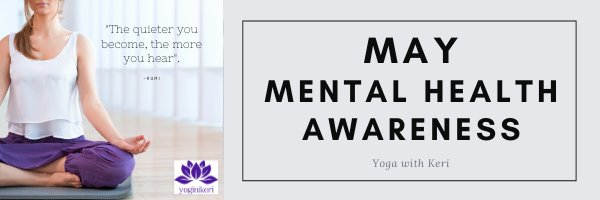
What if there were easier ways to cope with stress and anxiety than the burden (and expense) of over-the-counter drugs.
So many people who experience anxiety simply aren't aware that there IS an alternative state of mind to feeling stressed all the time, WITHOUT depending on costly pharmaceutical to do so. For centuries, holistic medicine has treated those experiencing symptoms of anxiety, stress, and depression with all-natural methods of alleviating stress.
WATCH THIS MONTH'S WEBINAR...
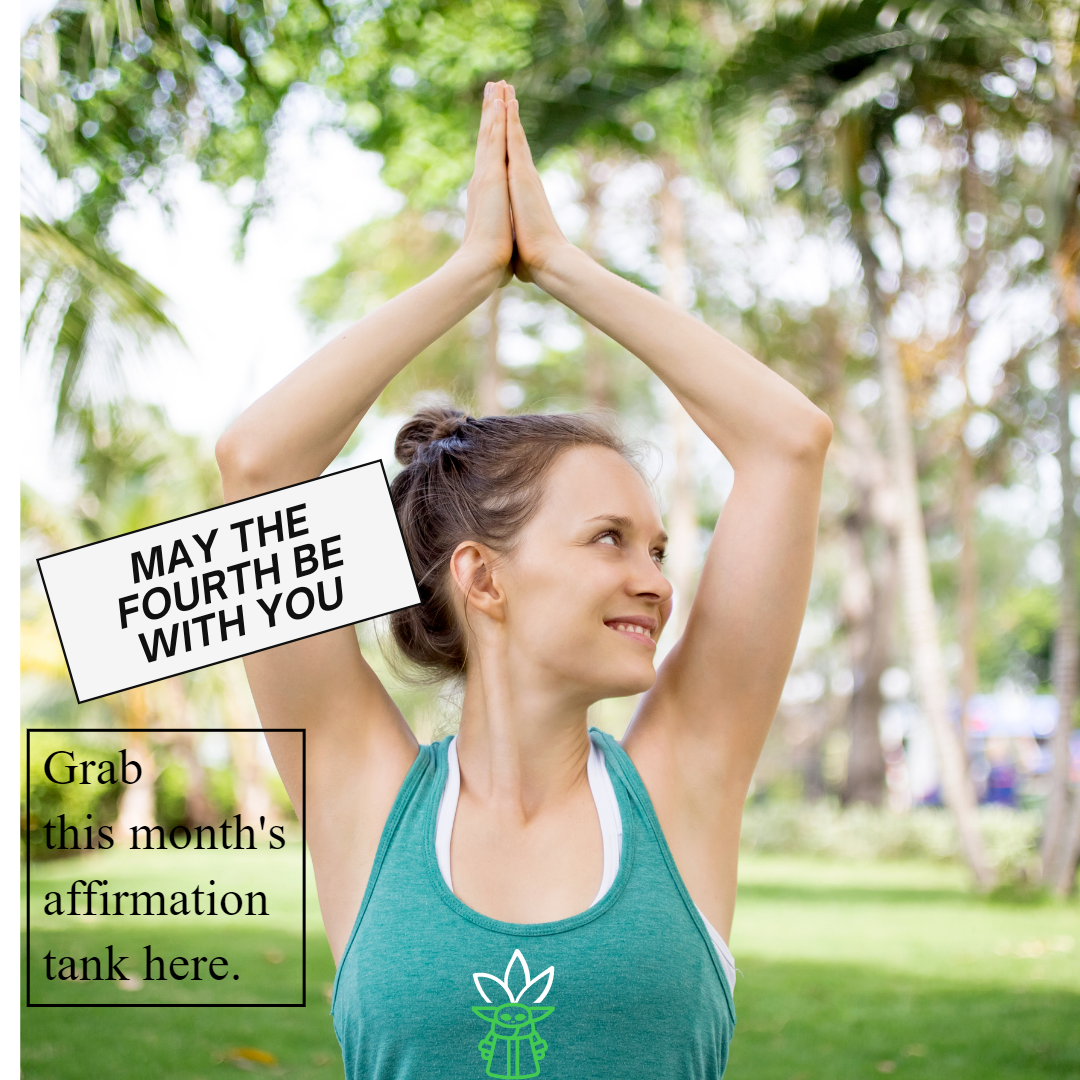 YOGA ON THE MAT
YOGA ON THE MAT
LAKE, PADDLEBOARD, VIRTUAL (Mat/Chair/Desk)
Practicing yoga is a way to sweat, burn calories, promote relaxation and a more centered mind overall...all while lowering your cortisol levels (aka your stress hormones) which can greatly improve your mental health.
From May through October join me outdoors to practice yoga! Here's how:
So many people who experience anxiety simply aren't aware that there IS an alternative state of mind to feeling stressed all the time, WITHOUT depending on costly pharmaceutical to do so. For centuries, holistic medicine has treated those experiencing symptoms of anxiety, stress, and depression with all-natural methods of alleviating stress.
WATCH THIS MONTH'S WEBINAR...
 YOGA ON THE MAT
YOGA ON THE MAT LAKE, PADDLEBOARD, VIRTUAL (Mat/Chair/Desk)
Practicing yoga is a way to sweat, burn calories, promote relaxation and a more centered mind overall...all while lowering your cortisol levels (aka your stress hormones) which can greatly improve your mental health.
From May through October join me outdoors to practice yoga! Here's how:
- Weekly class: Saturdays or Sundays at 10am
*4 person minimum so sign up ASAP to reserve your spot! - Create your own lake yoga or virtual class. Coordinate date/time here. *Splitting the class fee is more economical than attending the weekly class.
- Paddleboard Yoga - message me for more information
- Prenatal Yoga
- Mom & Me Yoga (ages 7-12) - message me for more information
JOIN A CLASS HERE...
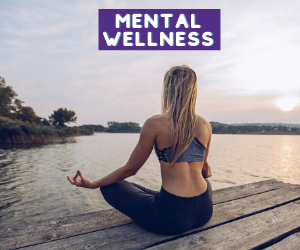 YOGA "OFF THE MAT"
YOGA "OFF THE MAT"Meditation Challenge
As any yoga instructor will tell you, yoga is more than crazy headstands and impressive balances, it's a lifestyle that brings balance and harmony to the mind, body and spirit. Yoga is....sitting still and breathing, serving others, being present in any moment.
So many studies have been completed in recent years which focus on proving just how meditation can benefit both our physical and mental health. Join this month's 21 day challenge by to learn how to meditate:
- Signing up for 3+ yoga classes here
OR - Watch this month's Oils and Emotions class here.
- Host a 30-minute virtual Savvi event (message me for more information)
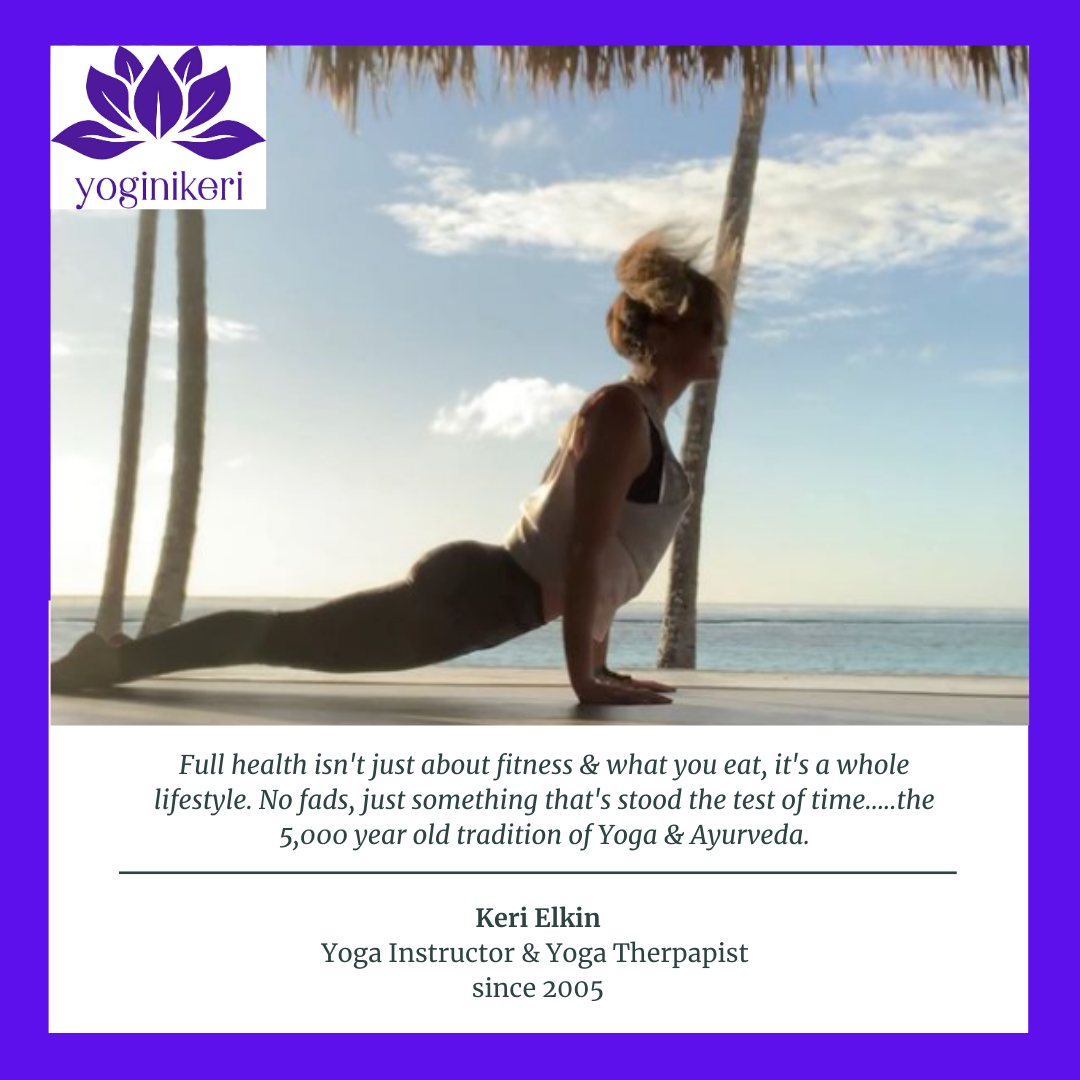
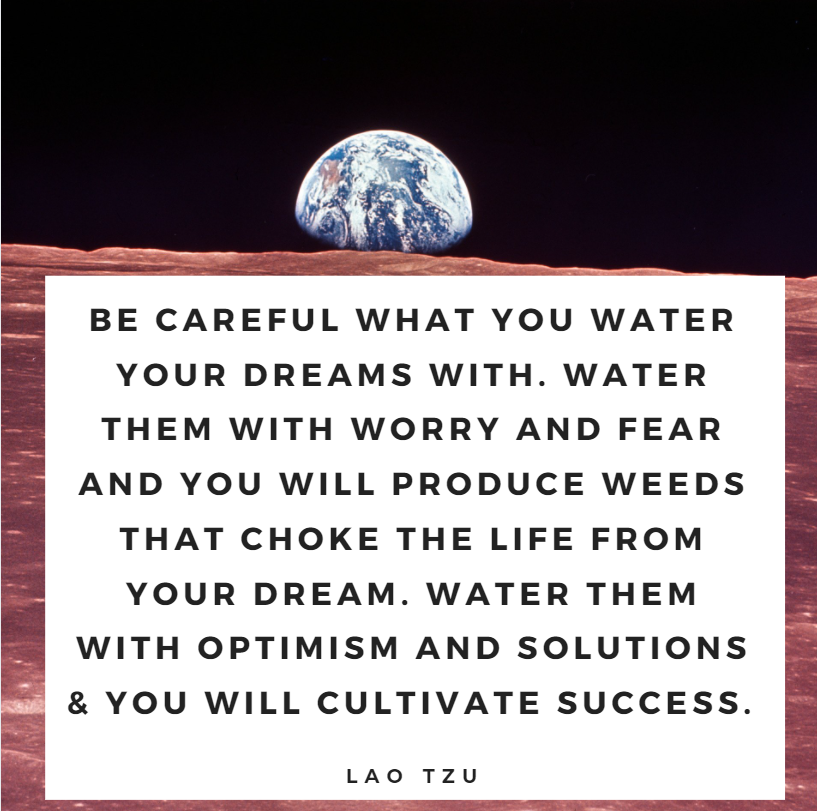
Happy Earth Day!
A great way to celebrate EARTH DAY is to make small changes together. Mindfully making small shifts daily can protect our environment. Every decision we make impacts the world in a big or small way.
Now take that same mindfulness caring for ourselves. We are all our own little Earth....together a universe. The small changes we make daily can protect our mental, physical & emotional well-being. Every decision we make impacts not only ourselves but those around us....including our friends, family & earth! If you haven't yet incorporated meditation, mindfulness or yoga into your life, what are you waiting for?
Which of these 3 shifts can you make today?
ENVIRONMENTALLY ENGINEERED CLOTHING
Sourcing and Sustainability are super important for the earth, to me and the athleisurewear brand I partnered with this past year. Something as simple as a piece of clothing CAN make a difference which is why we have designed and released 3 items made from recycled water bottles. Isn't that amazing?! These leggings & shorts with pockets, and sports bra are moisture wicking, offer enhanced comfort in cold or hot temperature, natural UV protection, come in 3 colors AND are soft!
- Check out the Eco Leggings, Eco Sports Bra & Eco Shorts here.
- Ask me how to get $25 off for new customers or 15% off for existing customers.
- Check out the new releases EVERY Friday @ 1PM Live at
Savvi Lifestyle Co. Facebook page OR @Savvilifestyleco on Instagram.
KNOW BETTER. CLEAN SMARTER.
In addition to affecting the personal health of you and your loved ones, using toxic cleaning products can also threaten water quality and wildlife after they disappear down the drain.
Many are not readily biodegradable in soil and water, so they hang around as a pollutant. Their presence harms wildlife, but also eventually makes its way back to us - the water we pollute will eventually be consumed by us or at least by the plants and animals that we consume.


